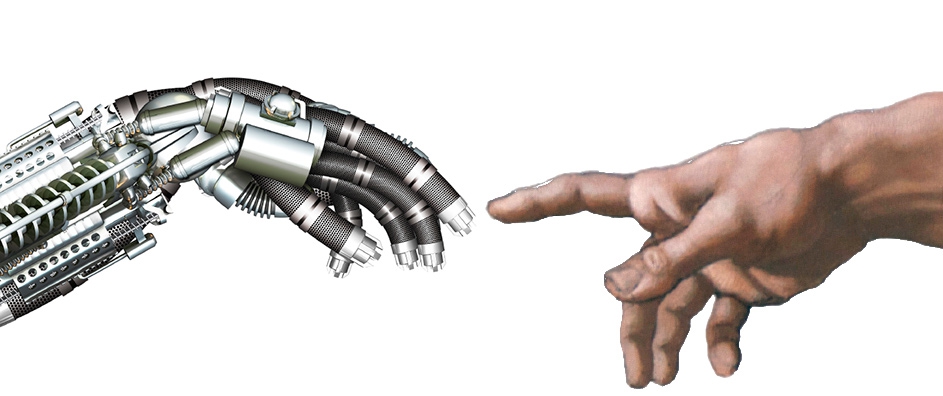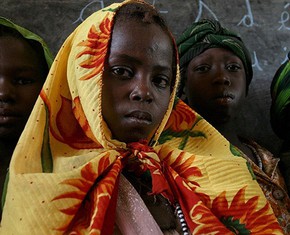The views expressed in our content reflect individual perspectives and do not represent the authoritative views of the Baha'i Faith.
Religion must agree with science, so that science shall sustain religion and religion explain science. The two must be brought together, indissolubly, in reality. Down to the present day it has been customary for man to accept blindly what was called religion, even though it were not in accord with human reason. – Abdu’l-Baha, Divine Philosophy, p. 26.
On June 18, 2015, Pope Francis released his long-awaited encyclical letter, “Laudato Si’: on care for our common home.”
The title comes from the canticle of Saint Francis, “LAUDATO SI’, mi’ Signore” – “Praise be to you, my Lord”, and sets the theme for a lengthy addition to Catholic Church teaching that addresses both the environmental challenges facing the world and persistent poverty, weaving the two themes together as aspects of the same spiritual illness facing the world today.

Pope Francis
The Pope frames his encyclical letter as an integrated systems perspective on the material and spiritual challenges the world faces, and on the need for spiritual solutions. Baha’is welcome such a clear stand by the Catholic Church on issues where we share the urgent priority they should be given, and the diagnosis of the fundamental spiritual illness behind both problems.
The encyclical letter, which has 246 paragraphs (identified here by their paragraph number and this § symbol), opens with a sixteen-paragraph introduction; followed by six chapters starting with where we are in our treatment of our planetary home, and ending with the type of spiritual education needed to come to terms with environmental challenges and poverty. The chapter titles are: Chapter 1, “What Is Happening to Our Common Home”; Chapter 2, “The Gospel of Creation”; Chapter 3, “The Human Roots of the Ecological Crisis”; Chapter 4, “Integral Ecology”; Chapter 5, “Lines of Approach and Action”; and Chapter 6, Ecological Education and Spirituality.” Each chapter has between three and nine subsections. The encyclical concludes with a prayer for our earth and a Christian prayer in union with creation.
The Pope addresses his letter to all the peoples of the world, not just Catholics. It opens with a review of previous Catholic statements on the environment, going back to Saint Francis of Assisi, and citing also the initiatives of the Ecumenical Patriarch Bartholomew of the Orthodox Church, as well as Protestant and Sufi sources. It summarizes the major environmental challenges as defined by science, and explores their deeper causes in a materialistic society, where short-term selfish interests bent on profit without regard for the needs of the poor or the environment dominate. The issues discussed include pollution and climate change, water (for which access is a basic human right), loss of biodiversity, decline in the quality of human life and the breakdown of society, global inequality, weak governmental responses, and the variety of opinions. The encyclical advances strong critiques of consumerism, the economy and multilateral corporations reminiscent of those in statements and publications of the Baha’i International Community and One Common Faith, the Baha’i statement on the essential unity and harmony of all religions (prepared under the supervision of the Universal House of Justice, 2005), among others.
Among the themes developed by the Pope are the intimate relationship between the poor and the fragility of the planet, the conviction that everything in the world is connected, the critique of new paradigms and forms of power derived from technology, the call to seek other ways of understanding the economy and progress, the value proper to each creature, the human meaning of ecology, the need for forthright and honest debate, the serious responsibility of international and local policies, the throwaway culture and the proposal of a new lifestyle.
This new Papal encyclical also proposes several constructive pathways for dialogue and action. In this short series of essays, we’ll explore those proposals and examine their congruence and coherence with the Baha’i teachings on global poverty and our planetary environment.
Our Relationship to Nature, to God, and to Our Fellow Human Beings
In the Pope’s encyclical, Chapter 2 on the gospel of creation begins with a call for a dialogue between science and religion, and the light offered by religious faith on the challenges identified by science. Our relationship with God, with other human beings and with nature has been broken, the Pope says, and we must return to our obligation to use the earth’s goods responsibly, and to respect other living beings and all of creation. “Everything is interconnected, and… genuine care for our own lives and our relationships with nature is inseparable from fraternity, justice and faithfulness to others.” (§70) The scriptures describe God as the creator, and depict the love of God for His creation.
The Pope is critical of every tyrannical and irresponsible domination of human beings over other creatures, just as the Baha’i teachings are:
If we acknowledge the value and the fragility of nature and, at the same time, our God-given abilities, we can finally leave behind the modern myth of unlimited material progress. A fragile world, entrusted by God to human care, challenges us to devise intelligent ways of directing, developing and limiting our power. (§78)
With respect to nature, each creature has its own purpose. The contemplation of creation allows us to discover in each thing a teaching that God wishes to hand on to us. We can better understand the importance and meaning of each creature if we contemplate it within the entirety of God’s plan. As part of the universe, called into being by one Father, all of us are linked by unseen bonds and together form a kind of universal family, a sublime communion that fills us with a sacred, affectionate and humble respect. The natural environment is a collective good, the patrimony of all humanity and the responsibility of everyone.
These principles of unity and stewardship and human oneness, first taught by Baha’u’llah in the mid-19th century, have now begun to influence the entire planet.
















Comments
Sign in or create an account
Continue with Googleor